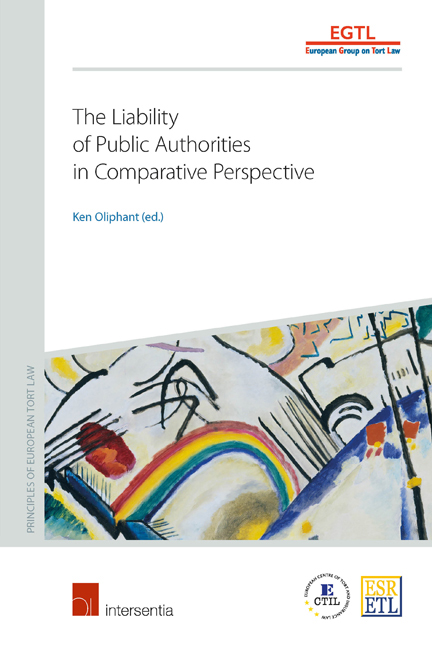The Liability of Public Authorities in Comparative Perspective
from PART III - CONCLUSIONS
Published online by Cambridge University Press: 27 November 2017
Summary
INTRODUCTION
OVERVIEW
As stated at the outset of this volume, and underlined in its pages, liability relating to public authorities (‘public authority liability’) has in recent decades been one of the main focuses of development in and at the edges of tort law in Europe, with major reforms implemented or considered at national level, and a steady stream of major court decisions. During the same period, ‘Member State liability’ has also been recognised in the law of the EU, and the interplay of principles of national and EU law – and additionally the ‘just satisfaction’ jurisprudence of the European Court of Human Rights – evidently warrants close attention. Though several major comparative law studies on public authority liability have already been undertaken, the European Group on Tort Law Group felt that it would be able make a meaningful contribution to the existing literature and decided to embark on its own investigation of public authority liability from a comparative perspective. Its aims in so doing were twofold: first, to contribute to the understanding of the law of public authority liability as it currently stands in the various European legal systems, and in selected legal systems elsewhere in the world, and thereby to facilitate its enhancement where necessary or desirable; secondly, to address the possibility for harmonisation in the area – specifically, through the extension and adaptation of its Principles of European Tort Law (PETL) to cover the liability of public authorities. The rest of this chapter highlights some of the key findings of the Group's research, presented under the headings used in the questionnaire for the reports in Part I, before returning at the end to the issue of common principles of public authority liability.
HISTORICAL EVOLUTION
Public authority liability is a child of the 19th and 20th centuries. Until the middle of the former century, all legal systems observed the maxim ‘the King can do no wrong’ (oft en rendered in French: le roi ne peut mal faire). The immunity of the State for the actions of its servants was underpinned by the theory that the civil servant's mandate to act extended only to lawful and correct conduct which could never lead to liability (Mandatsvertragstheorie, mandate contract theory). But gradually, from the mid-19th century on, the immunity was limited in application, then abolished.
- Type
- Chapter
- Information
- The Liability of Public Authorities in Comparative Perspective , pp. 849 - 887Publisher: IntersentiaPrint publication year: 2016



